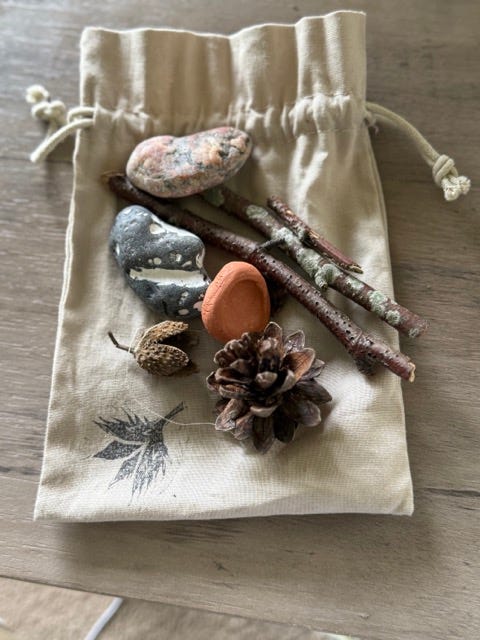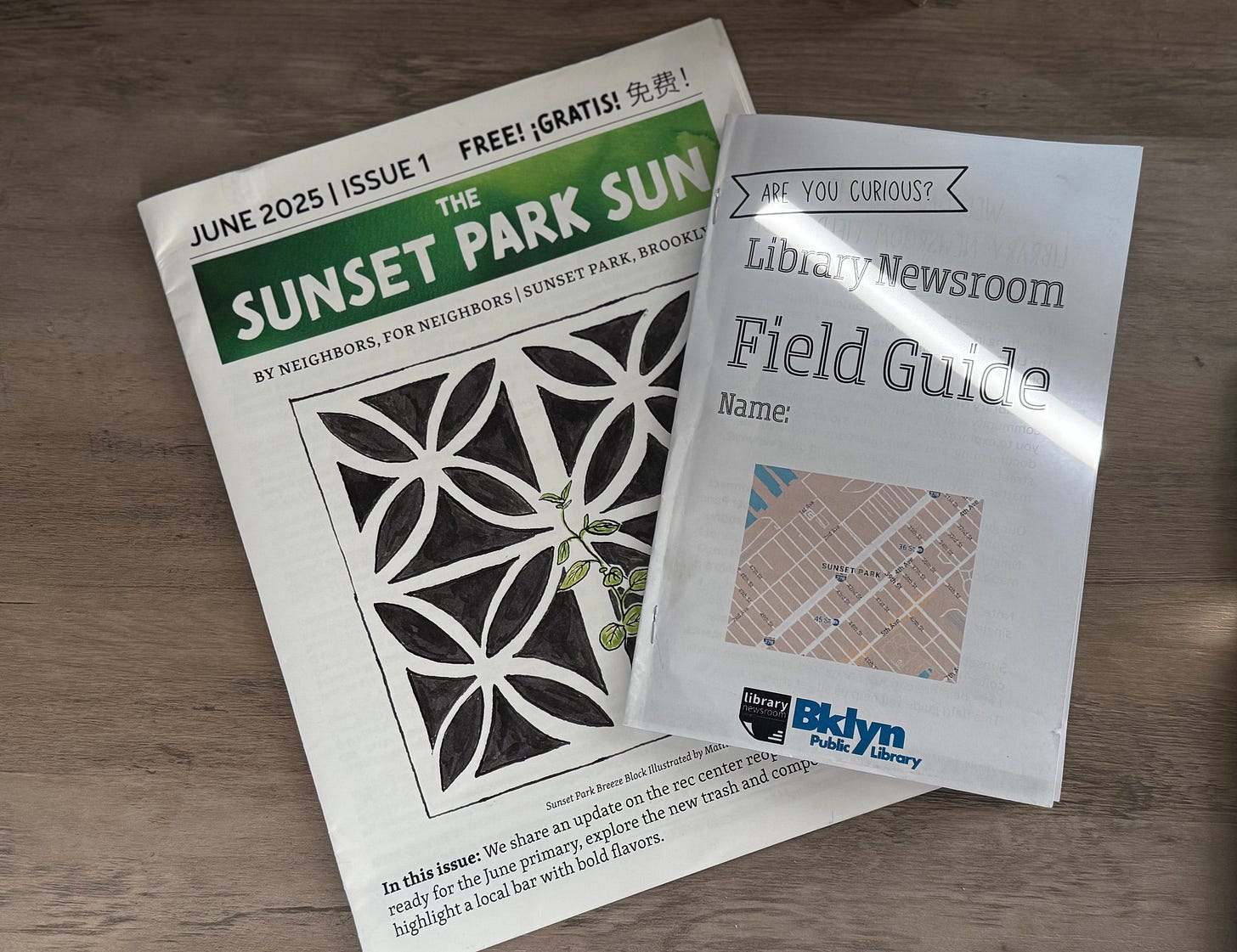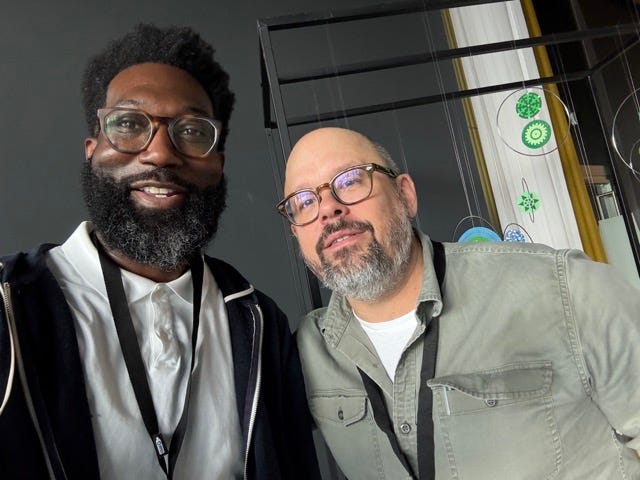My Book, A Missing Chapter, and What I Witnessed in Denmark
My book has been out for just over six months now. Amidst the flurry of deadlines and revisions, one chapter didn’t make the final cut: “The Public Library (An Evolving Institution): Past – Present – Future.” Its aim was simple but important—to show that public libraries have never been static. From the beginning, they’ve mirrored the shifting rhythms of society, transforming in both form and function to meet the changing needs of the people they serve.
While many of us hold nostalgic memories of storytime, book clubs, or research projects, those moments—though meaningful—can’t fully capture the depth and worth of what libraries provide to our communities. Libraries have always evolved. In 1905, the bookmobile reimagined access for rural children. In 1982, public computers ushered in a new era. During the COVID-19 pandemic, libraries pivoted to virtual programming, outdoor StoryWalks, and even food distribution—proving once again their remarkable agility.
That sense of evolution has come into even sharper focus as I’ve traveled the country - and beyond - promoting the ideas in the book. But it was on full display just last week, when I had the chance to attend the Next Library Festival in Aarhus, Denmark.
A Festival Designed with Purpose
The Next Library Festival is an international gathering of forward-thinking library professionals, innovators, and decision-makers pushing boundaries around 21st-century learning. The entire experience is shaped by co-creation—participants help shape the themes, formats, and energy of the event itself. The result? A beautiful patchwork of interactive meetings, wildcard sessions, exhibitions, keynotes, unconferences, and surprises.
And though intentionally capped at 350 attendees, it still drew participants from more than 30 countries this year.
I’ve shared on LinkedIn how much I saw the intersection of intentionality and design come alive at this festival. As someone who’s spent the last two decades planning conferences and civic gatherings, I can tell when organizers have asked the big questions: Why are we gathering? What do we want people to leave with—emotionally, intellectually, communally? When those questions are answered with care, you get touchpoints like these:
Invitation
Upon entry, participants were greeted with a “nature buffet”—a curated table of small limbs, stones, scented clay, and more. Each attendee selected items to place in a small bag, which they carried with them throughout the festival. These tactile pieces grounded us in nature and offered moments for reflection.
Nearby were other beautiful touchpoints: a “reflection tree,” conversation prompts, and an interactive library exhibit called The Concopian Chamber of Wonders—a living installation of life-size cards exploring themes like civic desire, enchantment, and pivotal people. Designed to spark the imagination and ignite meaningful conversation, it did exactly that.
Celebration
This year marked the debut of the Changemaker Award, honoring libraries that are meeting needs and sparking opportunity in bold ways. One of the winners was Craft, Play, Share!—an Italian project that invites library visitors to transform disposable materials into custom board games. Designed for children aged 5–11 and their caregivers, it’s free, inclusive, and creatively rooted in sustainability.
Conversation
Across four days, conversations swirled around three main themes: Democracy, Play, and the Sustainable Development Goals.
How can connecting nature and culture guide us toward a more sustainable future?
How can play serve as a powerful learning tool—not just for kids, but for all of us?
Will the world be more or less democratic in 20 years—and what role will libraries play?
I was honored to collaborate with two colleagues to help frame and respond to each of these themes. Together, we explored...
The evolving civic role of libraries
The power of play in shaping inclusive institutions
Ways libraries can protect and promote democratic engagement
Design as Democracy
Of all the festival’s themes, the democracy track featured the most sub-questions—each one urgent:
As public discourse moves online and polarizes, how can libraries remain venues for dialogue?
When books are banned, how do libraries respond?
Can libraries truly bridge political divides—and are librarians nonpartisan?
How do we engage apathetic citizens without losing hope?
And the one that lingers with me: Whose voices get heard?
That question—about voice and representation—has been a thread in many of the conferences I’ve attended this year. At the Knight Media Forum, two sessions in particular struck me: “Addressing the Local Information Drought” and “Who Gets to Be Called a Journalist in 2025?”
Both sessions explored trust, credibility, and how traditional journalism can learn from creator-journalists—and vice versa. The insights from those conversations found a natural echo at Next Library Festival, especially in a session called Libraries as Democracy’s Newsroom: Connecting Communities Through Storytelling.
The Library Newsroom: A Model of Co-Creation
Led by journalist Terry Parris Jr., the Library Newsroom Project at the Brooklyn Public Library’s Sunset Park branch is a participatory journalism initiative rooted in co-creation. Residents bring their lived experience; the library provides structure and support. Together, they produce hyperlocal media like community bulletins—highlighting local challenges, stories, and solutions.
One standout effort is a community field guide where residents identify:
A place that brings them joy
A place that tells a story
A place they’re curious about
That curiosity often sparks citizen-led journalism projects. Stories are compiled into The Sunset Park Sun, a printed publication that might feature anything from a beloved neighborhood restaurant to a primer on ranked-choice voting.
It’s asset-based community development at its finest—using storytelling to fill information gaps, amplify voices, and strengthen civic ties. And it raises essential questions: What happens when citizens use library resources to report? What would this model look like in smaller libraries with fewer resources?
We didn’t land on all the answers. But we knew this: it’s worth exploring.
Looking Ahead
As I reflect on what’s next, a few things are on my radar (and that you’ll want to check out):
Civic space is closing – but local journalism might open it up. This insightful piece by my colleague Jennifer Brandel poses an important question: What if newsrooms focused not just on informing the public, but also on helping residents connect and organize? Her thoughts dive deeper on much of what I’ve already shared and is worth the read.
The 2025 Summer of Democracy Reading List (via Civic Nebraska) - “a collection of thought-provoking titles nominated by Nebraskans from all walks of life. Now in its eighth year, the 2025 list features nonfiction books that explore democracy, civic life, U.S. history, and social justice. Each title is a window into the forces that shape our shared civic experience, and each nomination reflects the curiosity, concern, and commitment of engaged Nebraskans.” Check it out!
A Sacred Story for Our Time (June 20): A timely conversation on wisdom, belonging, and spiritual imagination from two of my favorite people: Krista Tippett and john a. powell. “At a time of breaking when so much is falling apart, something powerful is happening at the forefront of human meaning and connection: people are coming together to rediscover reverence, reimagine spirituality and revitalize life and culture. For those that are called to participate in this vital unfolding...how can we bridge tradition and innovation, honoring our past and welcoming our future?” I’m looking forward to this conversation!
Share Our America: The Summit: This one is a shameless plug because I’m part of it. Americans of all beliefs and backgrounds are worried about our country’s future. We’re in a crisis of community and broken connection.
Co-presented by 92NY’s Belfer Center for Social Innovation and the Aspen Institute’s Weave: The Social Fabric Project, Share Our America: The Summit will highlight stories of Americans making change in their communities to bridge, connect and weave despite challenging contexts.
Hear how you can get involved and make change where you live. June 11, 2025. Register for free.
American University’s push for civic discourse: An article that I’ve flagged but have yet to meaningfully digest. I believe libraries can learn a great deal from college campuses when it comes to facilitating community conversations and public discourse. This article, among many others, are starting to provide that roadmap.
Building Community Trust Through Libraries: One more shameless plug (lol), but only because it’s one my favorite work projects at the moment. We know that public libraries are among the most trusted institutions in the U.S., providing spaces where people of all backgrounds can connect, learn, and build a shared future. Yet, in a time of increasing division, libraries play a crucial role in fostering social trust and civic engagement. To support this vital work, IREX, the Urban Libraries Council, and OCLC’s WebJunction are launching a national coalition of urban, rural, and tribal public libraries. Based on the Bridgebuilding Resource Hub, this initiative will equip library professionals with the tools, strategies, and support they need to bridge divides and strengthen trust in their communities. This initiative is open to all libraries, ULC member or otherwise, and we’re at nearly 150 individuals. We’ll be starting later this month and are particualy looking for more participants from small and rural branches. If you, or someone you know might be interested, let me know.
Final Thought
If I could go back and slip just one more chapter into my book, it would be this: a chapter that celebrates the living, breathing, evolving library. A place where intentionality meets design. Where stories aren’t just told—they’re co-created. Where democracy isn’t just protected—it’s practiced.
Libraries have always evolved. The real question is: Are we evolving with them?




